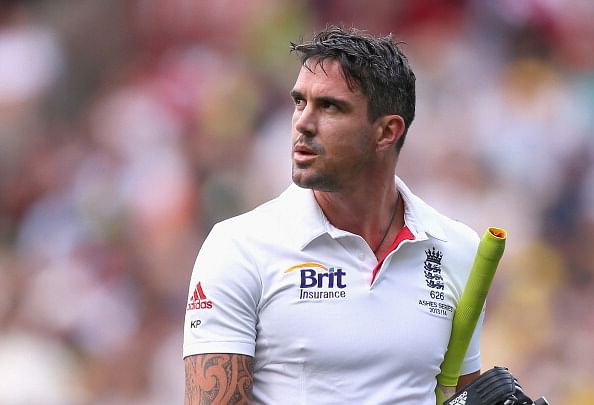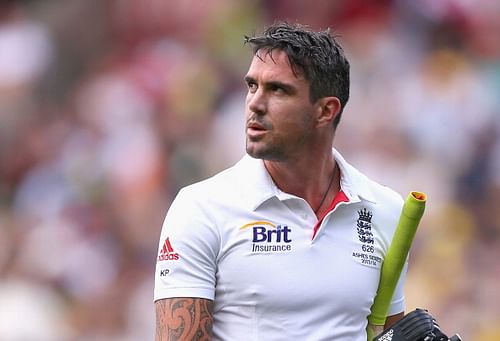
Kevin Pietersen, Bradley Wiggins and the issue of trust

An examination of the non-selections of Kevin Pietersen and Bradley Wiggins, and why the issue of trust lies at the heart of it.
Aside from enjoying both watching and participating in as many cricketing and cycling related activities as is humanly possible, it wasn’t until a few weeks ago that the striking similarities between the two sports became apparent to me. Indeed both sports possess significant team elements while also relying on individual performances and battles in a way that rugby, football, and many other mainstream sports do not.
Cricket is perhaps as close as one can get to an individual sport whilst still remaining within the parameters of a team sport, while cycling is perhaps as close as one gets to a team sport whilst still being seen by the masses as an individual sport. Indeed, perhaps the only major perceptual difference between the two is that the cycling record books are dominated by great individuals – Eddie Mercx, Greg Lemond, Miguel Indurain, while the cricketing results are shaped by teams. Even so, this distinction is arguably blurred – great cricketers are perhaps more memorable than great sides.
The recent weeks has seen a further point of parallel between the two sports. In many respects, the current plight of multiple Olympic Gold Medal and 2012 Tour de France winner Bradley Wiggins, bears many similarities to that of multiple Ashes winner Kevin Pietersen. Wiggins, by his own admission, has been left out of Team Sky’s Tour de France team. This is in spite of having won the Tour of California last month, and seeming in excellent shape ahead of the Tour, beginning next month in Yorkshire.
Pietersen, meanwhile, has been unceremoniously dumped by England, despite top scoring for his adopted nation in the Ashes and being statistically the best, and undoubtedly the most dangerous batsman in English cricket. Except he’s barely in English cricket anymore. His split with the ECB means the only way England fans get to see the audacity of his play, is on occasional Friday nights at The Oval for Surrey. That is undoubtedly a great shame.
As it is that the hundreds of thousands of fans who will descend upon the Yorkshire hills in early July, will not get to see Bradley Wiggins ascending the climbs of the Dales at the front of the Team Sky train. As great as the accomplishments of Alastair Cook and Chris Froome may be, they will never garner the attention, popularity and fascination that Pietersen and Wiggins attract. All four are clearly stars. But regardless of whose performances shine brighter, the spotlight never seems to shift away from the two men whose bosses have tried to confine them to the shade over recent weeks.
Alastair Cook and the hierarchy at the ECB clearly feel, rightly or wrongly, that they cannot trust KP. They feel he is a disruptive influence on the team environment, and moreover, they feel that this is to such an extent that they are better off their best batsman. That is telling and should not be ignored. Meanwhile, it seems Dave Brailsford has decided that given the tumultuous time the pair endured in 2012, where Froome was on the point of staging a mutiny and dumping Wiggins mid way through the final climb of a stage, it would be unwise to have the pair in the same team this time round. Froome’s recently published autobiography merely serves to further the view that there is an inherent dislike and lack of trust shared between the two of them.
The question is, what is the answer to all of this? Wiggins made it abundantly clear following California that he would be prepared to ride in the tour, not as a number two to Froome, but in support of him as a ‘domestique’. Pietersen meanwhile has stressed since his sacking that he never gave anything less than one hundred per cent to England and would still dearly love to be involved in England. Neither claim do I doubt.
The problem is one of actions and not words. It is impossible not to be a fan of the way Pietersen plays the game – it is instinctive, exciting and inspiring. Given a choice, most people would rather watch Pietersen bat than Alistair Cook. It is also hard not to be a fan of Wiggins – he is arguably the smoothest peddler in the peleton, while his inherent desire to speak his mind in interviews ensures he stands out as a character in a sporting world that is often dominated by ‘coach speak’ and meaningless responses. Yet despite this, both Pietersen and Wiggins have developed a reputation of being ‘difficult’ characters to be around.
While the reasons behind Pietersen’s sacking seem to be based his general attitude and conduct than one particular incident – it is joked that ‘whistling too loudly’ was cited as an explanation behind is P45 – his past is suggestive that controversy is never far away. He left both Nottinghamshire and Hampshire under a cloud of acrimony and issued a ‘him or me’ ultimatum to the Board over Peter Moores.
Meanwhile, his behaviour in the summer of 2012, which included sending ‘provocative’ texts to the opposition about his captain, and attempting to blackmail the England management through a series of bizarre interviews and press conference which culminated in his short-lived ‘retirement’ from ODIs, suggest that his sacking is not simply the result of an England management who simply ‘decided’ to be done with him.
This leads us to another issue though. If it is indeed the case that there was no real justifiable incident which caused Pietersen’s sacking this winter, is it not both unfair and unjustifiable to sack him based on past misdemeanours? Perhaps. If people were punished for every single past wrong in life, the world would be a very bitter, backstabbing place. Kevin Pietersen might feel this is a fair description of the England management.
Then again, perhaps citing past behaviour and misdemeanours led to such a position where there was such distrust between the parties. Perhaps the Cook of 2014 regretted the generous decision of the Cook of 2012, which allowed Pietersen back into the fold. Perhaps he felt that, two years on, Pietersen wasn’t worth the trouble he had, and might potentially cause; that the issues of 2012 were not simply confined to that summer, but were part of a wider problem.